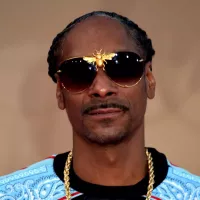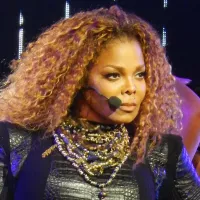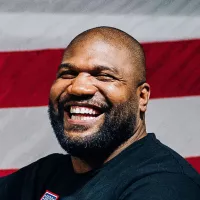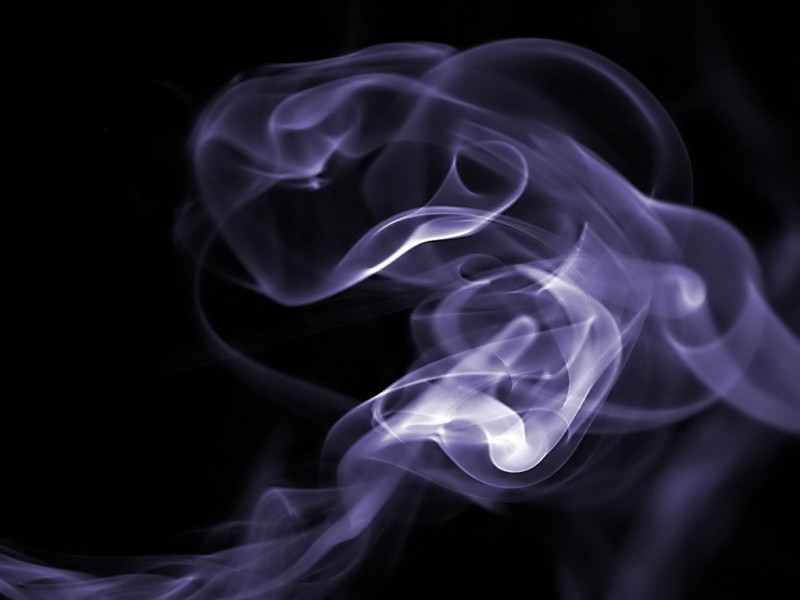Tupac Shakur, also known as 2Pac and Makaveli, was a highly influential American rapper and actor. Considered one of the greatest rappers of all time, he was also a prominent political activist for Black America and a best-selling music artist with over 75 million records sold. Beyond music, Shakur wrote poetry and acted in films. His lyrics addressed social injustice, political issues, and the marginalization of African-Americans, though he was also associated with gangsta rap and violent content.
January 10, 1947: Birth of Afeni Shakur
On January 10, 1947, Afeni Shakur, Tupac's mother, was born as Alice Faye Williams in North Carolina. She was a member of the Black Panther Party.
March 14, 1949: Birth of William "Billy" Garland
On March 14, 1949, William "Billy" Garland, Tupac's biological father, was born. He was also a member of the Black Panther Party.
November 1968: Marriage of Afeni Shakur to Lumumba Shakur
In November 1968, Tupac's mother, Afeni Shakur, married Lumumba Shakur, a Sunni Muslim, who later turned out not to be Tupac's biological father.
1968: Wrongful Conviction of Elmer "Geronimo" Pratt
In 1968, Elmer "Geronimo" Pratt, Tupac Shakur's godfather, was wrongly convicted of murdering a schoolteacher during a robbery, leading to his imprisonment.
June 16, 1971: Tupac Shakur's Birth
On June 16, 1971, Lesane Parish Crooks, later known as Tupac Amaru Shakur, was born in New York City. He became one of the most influential rappers of all time.
1971: Tupac Shakur's Birth Year
Tupac Amaru Shakur was born in 1971.
1977: Conviction of Assata Shakur
In 1977, Assata Shakur, Tupac's godmother, was convicted of the first-degree murder of a New Jersey State Trooper.
1979: Escape of Assata Shakur from prison
In 1979, Assata Shakur, Tupac's godmother, escaped from prison after being convicted of the first-degree murder of a New Jersey State Trooper.
1979: Release of Apocalypse Now
In 1979, the film Apocalypse Now was released, which later served as an allusion for Tupac's debut album, 2Pacalypse Now.
1981: Brinks armored truck robbery
In 1981, Mutulu Shakur was involved in a robbery of a Brinks armored truck, during which police officers and a guard were killed.
1984: Relocation to Baltimore
In 1984, Tupac Shakur relocated with his family to Baltimore, Maryland, marking a new chapter in his upbringing.
1986: Apprehension of Mutulu Shakur
In 1986, Mutulu Shakur, Tupac's stepfather, who had been one of the FBI's Ten Most Wanted Fugitives for four years, was apprehended.
1988: Early work with Strictly Dope
From 1988, Dright and Digital Underground produced Tupac Shakur's earliest work with Strictly Dope.
1988: Began recording as MC New York and attended poetry classes
In 1988, Tupac Shakur began recording under the stage name MC New York and started attending poetry classes with Leila Steinberg, who became his manager.
1988: Move to Marin City, California
In 1988, Tupac Shakur moved to Marin City, California, an impoverished community in the San Francisco Bay Area, and attended Tamalpais High School.
1988: Relocation to San Francisco Bay Area
In 1988, Tupac Shakur moved to the San Francisco Bay Area, further shaping his environment and future career.
1989: Early work with Strictly Dope
From 1989, Dright and Digital Underground produced Tupac Shakur's earliest work with Strictly Dope.
1990: Friendship with Treach Begins
In 1990, Tupac Shakur befriended Treach when they were both roadies on Public Enemy's tour.
1990: Joined Digital Underground as a roadie and backup dancer
In 1990, Tupac Shakur was placed with Digital Underground as a roadie and backup dancer by Atron Gregory, marking the start of his professional music career.
January 1991: Debut on Digital Underground with "Same Song"
In January 1991, Tupac Shakur debuted under the stage name 2Pac on Digital Underground with the single "Same Song" from the movie "Nothing but Trouble".
October 17, 1991: Shakur Files Lawsuit Against Oakland Police for Brutality
On October 17, 1991, Tupac Shakur was stopped by Oakland Police Department officers for jaywalking. Shakur filed a $10 million lawsuit against the officers for police brutality, alleging they choked him, threw him to the ground, and slammed his head on the concrete. The case was settled for about $43,000. It was later revealed that this incident was the onset of Shakur's autoimmune disease alopecia.
November 1991: Release of 2Pacalypse Now
In November 1991, Tupac Shakur released his debut album, 2Pacalypse Now, which was influenced by the film Apocalypse Now and cited as an inspiration by prominent rappers.
1991: Production of Shakur's earliest work
From 1991, Dright and Digital Underground produced Tupac Shakur's earliest work with Strictly Dope.
1991: Collaboration with Stretch
In 1991, Tupac Shakur became acquainted with Randy "Stretch" Walker through Digital Underground and began recording and performing with him.
1991: First Film Appearance in "Nothing but Trouble"
In 1991, Tupac Shakur made his first film appearance in "Nothing but Trouble", a cameo by Digital Underground.
1991: Release of 2Pacalypse Now
In 1991, Tupac Shakur released his debut album, 2Pacalypse Now, becoming a central figure in West Coast hip-hop.
June 1992: Controversy with Body Count's "Cop Killer"
In June 1992, Ice-T's band Body Count sparked controversy with their track "Cop Killer", which is relevant because Ice-T, along with Ice Cube, was featured on Tupac's album Strictly 4 My N.I.G.G.A.Z....
August 22, 1992: Conflict at Marin City Festival
On August 22, 1992, in Marin City, Tupac Shakur performed at a festival. After the performance, a conflict broke out, and Shakur allegedly drew a legally carried Colt Mustang but dropped it. Someone with him then picked it up when it accidentally discharged.
1992: Cameo in Naughty by Nature's Music Video
In 1992, Tupac Shakur made a cameo in Naughty by Nature's music video "Uptown Anthem".
1992: Starring Role in "Juice"
In 1992, Tupac Shakur starred in "Juice", playing the character Roland Bishop.
February 1993: Release of Strictly 4 My N.I.G.G.A.Z...
In February 1993, Tupac Shakur released his second album, Strictly 4 My N.I.G.G.A.Z..., which was a critical and commercial success.
April 5, 1993: Shakur Allegedly Assaults Rapper Chauncey Wynn
On April 5, 1993, Tupac Shakur was charged with felonious assault for allegedly throwing a microphone and swinging a baseball bat at rapper Chauncey Wynn at a concert at Michigan State University.
October 31, 1993: Shakur Arrested in Atlanta for Shooting Police Officers
On October 31, 1993, Tupac Shakur was arrested in Atlanta for shooting two off-duty police officers, brothers Mark Whitwell and Scott Whitwell. The Atlanta police claimed the shooting occurred after the brothers were almost struck by a car carrying Shakur. There are conflicting accounts that the Whitwells were harassing a black motorist and uttered racial slurs. According to some witnesses, Shakur and his entourage had fired in self-defense as Mark Whitwell shot at them first.
November 1993: Shakur Charged with Sodomy and Firearm Possession
In November 1993, Tupac Shakur and two other men were charged in New York with sodomizing Ayanna Jackson in Shakur's hotel room. Shakur was also charged with illegal possession of a firearm as two guns were found in the hotel room.
1993: Assault and Replacement in "Menace II Society"
In 1993, Allen Hughes replaced Tupac Shakur in the film "Menace II Society" after Shakur assaulted him on set.
1993: Release of Strictly 4 My N.I.G.G.A.Z...
In 1993, Tupac Shakur achieved multi-platinum success with his follow-up album, Strictly 4 My N.I.G.G.A.Z...
1993: Criticism of Quincy Jones and Apology
In 1993, Tupac Shakur criticized record producer Quincy Jones for his interracial marriage. Shakur later apologized to Jones' daughter, Kidada Jones.
1993: Prior Conviction in Los Angeles for Carrying a Concealed Firearm
In 1993, Tupac Shakur had a prior conviction in Los Angeles for carrying a concealed firearm, which made possessing a semiautomatic pistol in 1994 a felony offense.
1993: Friendship with Jada Pinkett and Career Assistance
In 1993, Tupac Shakur helped Jada Pinkett land her first movie role in "Menace II Society," and in return, Pinkett secured Shakur a guest-starring role on the sitcom "A Different World."
1993: Meeting Jasmine Guy on "A Different World"
In 1993, Tupac Shakur met Jasmine Guy during his guest appearance on the sitcom "A Different World".
1993: Meeting and friendship with the Notorious B.I.G.
In 1993, Tupac Shakur met The Notorious B.I.G. through a drug dealer in Los Angeles, and they quickly became friends, collaborating on stage and in the studio.
1993: Role in "Poetic Justice"
In 1993, Tupac Shakur played the character "Lucky" in the film "Poetic Justice" alongside Janet Jackson. Poet and activist Maya Angelou wrote the poems used in the film.
1993: Shakur Replaced in Menace II Society After Alleged Assault
In 1993, Tupac Shakur was slated to star in the Hughes Brothers' film Menace II Society but was replaced by Vonte Sweet after allegedly assaulting one of the film's directors, Allen Hughes.
1993: Confiscation of Videotape
In 1993, during a police raid of Tupac Shakur's hotel room in New York City, a videotape was confiscated which showed Shakur having sex with his then-girlfriend Desiree Smith.
1993: Formation of Thug Life
In late 1993, Tupac Shakur formed the group Thug Life with Big Syke, Macadoshis, Mopreme Shakur, and Rated R.
September 14, 1994: Shakur Pleads Guilty to Misdemeanor Assault
On September 14, 1994, Tupac Shakur pleaded guilty to a misdemeanor for assaulting rapper Chauncey Wynn in April 1993 and was sentenced to 30 days in jail, with twenty days suspended, and was required to complete 35 hours of community service.
October 11, 1994: Release of Thug Life, Volume I
On October 11, 1994, Thug Life released its only album, Thug Life, Volume I, which was certified Gold.
November 1994: Shakur Accuses Others of Involvement in Robbery and Shooting
In November 1994, Tupac Shakur was robbed and shot at Quad Studios. In a 1995 interview with Vibe, Shakur accused Sean Combs, Jimmy Henchman, and the Notorious B.I.G. – who were at Quad Studios at the time – among others, of setting up or being privy to the November 1994 robbery and shooting. This led to the East–West Coast rivalry in hip-hop.
November 30, 1994: Shakur Robbed and Shot at Quad Studios
On November 30, 1994, while in New York recording verses for a mixtape of Ron G, Tupac Shakur was repeatedly distracted by his beeper. He was offered $7,000 to stop by Quad Studios, where he was robbed and beaten at gunpoint. Shakur resisted and was shot. Shakur speculated that the shooting had been a set-up.
December 1, 1994: Shakur Acquitted of Sodomy, Convicted of Sexual Abuse
On December 1, 1994, Tupac Shakur was acquitted of three counts of sodomy and associated gun charges, but convicted of two counts of first-degree sexual abuse for "forcibly touching the woman's buttocks" in his hotel room. His accuser later filed a civil suit against Shakur seeking $10 million for punitive damages, which was subsequently settled.
December 1994: Conviction Pending
In December 1994, Tupac conviction appeal was still pending.
December 23, 1994: Shakur Surrenders to Authorities
On December 23, 1994, Tupac Shakur surrendered himself to authorities at the Bellevue Hospital Jail Ward in New York City, unable to post the $3 million bond to keep himself free until sentencing. At the time, he was still recovering from injuries he received on November 30, when he was shot five times and robbed at Quad Studios.
1994: Recuperation at Jasmine Guy's Home
After being shot in 1994, Tupac Shakur recuperated at Jasmine Guy's home.
1994: Dating Madonna
In 1994, Tupac Shakur and Madonna dated.
1994: Bond Formed with Mickey Rourke
In 1994, Tupac Shakur and Mickey Rourke formed a bond while filming the movie "Bullet."
1994: Falling out with B.I.G.
In 1994, Tupac Shakur had a falling out with The Notorious B.I.G. after being shot at Quad Studios, which led to a significant rift between them.
1994: Role in "Above the Rim"
In 1994, Tupac Shakur played a gangster named Birdie in the film "Above the Rim."
1994: Shakur Arrested in Los Angeles for Firearm Possession
In 1994, Tupac Shakur was arrested in Los Angeles after police found a semiautomatic pistol in his car, a felony offense due to a prior conviction in 1993 for carrying a concealed firearm.
1994: Jacques Agnant's Case Separated, Shakur Expresses Disdain
In 1994, after Shakur was convicted of sexual abuse, Jacques Agnant's case was separated and closed via misdemeanor plea without incarceration. Shakur reportedly believed Agnant had set him up with the case and that his accuser was connected to Agnant and James "Henchman" Rosemond.
1994: Ambush and Shooting Investigation
In November 1994, Tupac Shakur was robbed and shot at Quad Studios. In March 2008, Chuck Philips reported on the 1994 ambush and shooting in the Los Angeles Times. In June 2011, Dexter Isaac confessed he had been one of the gunmen who had robbed and shot Shakur at Henchman's order.
1994: Shakur Serves Jail Time for Assaulting Allen Hughes
In early 1994, Tupac Shakur served 15 days in jail after being found guilty of assaulting Allen Hughes, one of the directors of the film Menace II Society.
January 1995: Shakur Moved to Rikers Island
In January 1995, Tupac Shakur was moved to the North Infirmary Command (NIC) on Rikers Island in the Bronx.
February 7, 1995: Shakur Sentenced to Prison
On February 7, 1995, Tupac Shakur was sentenced to 18 months to 4 1/2 years in prison by a judge who decried "an act of brutal violence against a helpless woman".
February 1995: Release of "Dear Mama"
In February 1995, Tupac Shakur released "Dear Mama" with "Old School" as the B-side. "Dear Mama" became the album's most successful single, topping the Hot Rap Singles chart and peaking at No. 9 on the Billboard Hot 100.
March 1995: Shakur Transferred to Clinton Correctional Facility
In March 1995, Tupac Shakur was transferred to Clinton Correctional Facility in Dannemora. While imprisoned, he began reading works like The Prince and The Art of War, sparking his interest in philosophy, philosophy of war, and military strategy. On April 29, 1995, Shakur married his girlfriend Keisha Morris; the marriage was later annulled.
March 1995: Release of "Me Against the World" Album
In March 1995, while Tupac Shakur was incarcerated, his third album, "Me Against the World", was released. The album debuted at No. 1 on the Billboard 200 and sold 240,000 copies in its first week, setting a record for first-week sales by a solo male rapper at the time.
April 29, 1995: Marriage to Keisha Morris
On April 29, 1995, Tupac Shakur married his girlfriend Keisha Morris, a pre-law student. Their marriage was annulled ten months later.
June 1995: Release of "So Many Tears"
In June 1995, Tupac Shakur released "So Many Tears", which reached No. 6 on the Hot Rap Singles chart and No. 44 on the Hot 100.
August 1995: Release of "Temptations"
In August 1995, Tupac Shakur released "Temptations". It reached No. 68 on the Hot 100, No. 35 on the Hot R&B/Hip-Hop Singles & Tracks, and No. 13 on the Hot Rap Singles. Several celebrities appeared in the music video.
October 1995: Suge Knight Posts Bail for Shakur
In October 1995, Suge Knight visited Tupac Shakur in prison and posted $1.4 million bond, leading to Shakur's release. Shakur then returned to Los Angeles and joined Death Row Records.
October 1995: Shakur Bonded Out of Prison
In October 1995, while his judicial appeal was pending, Tupac Shakur was incarcerated in New York. On October 12, Suge Knight, CEO of Death Row Records, arranged for the posting of his $1.4 million bond, and Shakur was released from the maximum security Dannemora Clinton Correctional Facility.
1995: Pinkett's Financial Support and Rejected Marriage Proposal
In 1995, Jada Pinkett contributed $100,000 towards Tupac Shakur's bail, and turned down his marriage proposal while he was incarcerated at Rikers Island.
1995: Fired from "Higher Learning"
In 1995, John Singleton fired Tupac Shakur from the film "Higher Learning" because the studio would not finance the film following his arrest.
1995: Wrongful Death Suit Filed Against Shakur
In 1995, Qa'id's mother filed a wrongful death suit against Tupac Shakur, relating to the August 22, 1992, shooting where a bullet matched to Shakur's .38-caliber pistol fatally struck 6-year-old Qa'id Walker-Teal; the suit was settled for about $300,000 to $500,000.
1995: Release of Me Against the World
In 1995, Tupac Shakur released "Me Against the World", which led to further commercial success.
1995: Vocal layering technique in "Dear Mama"
In 1995, Tupac Shakur used a vocal layering technique, particularly in tracks like "Dear Mama" from his album "Me Against the World," which added depth and rawness to his voice by overlaying multiple vocal lines to emphasize rhythms and phrases.
1995: Release from prison pending appeal
In 1995, Tupac Shakur was released from prison pending an appeal of his sexual abuse conviction. Following his release, he signed to Death Row Records.
1995: Escalation of East-West Coast Hip Hop Rivalry
In 1995, months after Tupac Shakur's robbery and shooting, Combs and B.I.G. released the track "Who Shot Ya?", which Shakur took as a mockery. Consequently, he released a diss song, "Hit 'Em Up", targeting B.I.G., Combs, their record label, Junior M.A.F.I.A., and rivals Mobb Deep and Chino XL.
1995: People Looking Out for Shakur
In his 1995 interview with Vibe magazine, Tupac Shakur listed Jada Pinkett, Jasmine Guy, Treach and Mickey Rourke among the people who were looking out for him while he was in prison.
February 13, 1996: Release of "All Eyez on Me"
On February 13, 1996, Tupac Shakur's fourth album, "All Eyez on Me", was released. The album, which was rap's first double album, had five singles and shifted away from his previous political messages.
April 4, 1996: Shakur Sentenced to Jail for Release Violation
On April 4, 1996, Tupac Shakur was sentenced to 120 days in jail for violating his release terms and failing to appear for a road cleanup job, but was allowed to remain free awaiting appeal.
April 1996: Plans to Open a Restaurant
In April 1996, Tupac Shakur stated that he, Alanis Morissette, Snoop Dogg, and Suge Knight were planning to open a restaurant together.
July 4, 1996: Final recorded live performance
On July 4, 1996, Tupac Shakur had his final recorded live performance at the House of Blues.
September 7, 1996: Shooting in Las Vegas
On September 7, 1996, Tupac Shakur was shot four times in a drive-by shooting in Paradise, Nevada, leading to his death six days later.
September 13, 1996: Tupac Shakur's Death
On September 13, 1996, Tupac Shakur died after being shot on September 7, 1996, in a drive-by shooting in Las Vegas. His death marked a significant loss to the hip-hop community.
September 22, 1996: Peace summit convened by Louis Farrakhan
On September 22, 1996, a peace summit was convened at Mosque Maryam by Louis Farrakhan in response to Tupac Shakur's assassination, aiming to address the violence and conflicts within the hip-hop community.
1996: Release of The Don Killuminati: The 7 Day Theory
In 1996, Shakur's critically acclaimed posthumous album, The Don Killuminati: The 7 Day Theory, was released under his stage name Makaveli.
1996: Speaker at Memorial Service
In 1996, Treach was a speaker at a public memorial service for Tupac Shakur.
1996: Dating Kidada Jones
In 1996, Tupac Shakur began dating Kidada Jones.
1996: Release of All Eyez on Me album
In 1996, Tupac Shakur released "All Eyez on Me", solidifying his reputation with tracks like "Ambitionz az a Ridah", "I Ain't Mad at Cha", "California Love", "Life Goes On", and "Picture Me Rollin'" being hailed as classics. Shakur described the album as a celebration of life.
1996: Award at the Soul Train Music Awards
In 1996, Tupac Shakur won Best Rap Album at the Soul Train Music Awards for his album, Me Against the World.
1996: Recording and Release of "The Don Killuminati: The 7 Day Theory"
In 1996, Tupac Shakur's fifth solo album, "The Don Killuminati: The 7 Day Theory" (as Makaveli) was recorded during the summer and released that year. The lyrics were written and recorded in three days, and mixing took another four days.
1996: Release of "Bullet"
Shortly after Tupac Shakur's death, the film "Bullet", starring him, was released in 1996.
1996: Script for Phantom Menace Begins
The script for "Star Wars: Episode I - The Phantom Menace" began being written in 1996.
1996: Tupac Shakur's Death Year
Tupac Amaru Shakur died in 1996.
March 1997: Murder of Notorious B.I.G.
In March 1997, The Notorious B.I.G. was murdered in a drive-by shooting while visiting Los Angeles, six months after Tupac's death, fueling speculation and adding to the East Coast-West Coast hip-hop rivalry.
1997: Awards Won in 1997
In 1997, Tupac Shakur won R&B/Soul or Rap Album of the Year at the Soul Train Music Awards for the album "All Eyez on Me". He also won Favorite Rap/Hip-Hop Artist at the American Music Awards in the same year.
1997: Shakur Family Foundation founded
In 1997, Tupac Shakur's mother founded the Shakur Family Foundation, later renamed the Tupac Amaru Shakur Foundation (TASF), to provide training and support for students aspiring to enhance their creative talents.
1997: Starring roles in Gridlock'd and Gang Related
In 1997, after his death, Tupac Shakur starred in Gridlock'd and Gang Related.
1997: UC Berkeley course on Tupac Shakur
In 1997, the University of California, Berkeley, offered a course titled "History 98: Poetry and History of Tupac Shakur", exploring his life and works from an academic perspective.
1997: Releases of "Gridlock'd" and "Gang Related"
In 1997, two films starring Tupac Shakur, "Gridlock'd" and "Gang Related", were released posthumously.
June 1998: "All Eyez on Me" Certified 9x Multi-Platinum
In June 1998, Tupac Shakur's album "All Eyez on Me" was certified 9x Multi-Platinum.
1998: Default Judgment Against Shakur's Estate in Scott Whitwell Lawsuit
In 1998, Scott Whitwell's $2 million lawsuit against Tupac Shakur resulted in a default judgment entered against the rapper's estate.
1998: Release of Greatest Hits Album
In 1998, Tupac Shakur's double-length posthumous album Greatest Hits was released and is one of his two releases to have been certified Diamond in the United States.
1998: Release of Changes
In 1998, the song "Changes" was released.
June 15, 1999: "The Don Killuminati: The 7 Day Theory" Certified 4x Multi-Platinum
On June 15, 1999, "The Don Killuminati: The 7 Day Theory", was certified 4x Multi-Platinum.
1999: Release of Phantom Menace
In 1999, "Star Wars: Episode I - The Phantom Menace" was released. Lucas had asked Jackson to ask Shakur to audition but due to Shakur's death the role ultimately went to Samuel L. Jackson.
1999: Rumored Consideration for Star Wars Prequel Role
It was rumored that George Lucas considered Tupac Shakur for the role of Jedi Master Mace Windu in the Star Wars prequel films, starting with "The Phantom Menace" in 1999.
2000: Rediscovery of the lost tapes
In 2000, Shakur's recordings with Strictly Dope were rediscovered and released as "The Lost Tapes: Circa 1989".
2000: Greatest Hits leaves Billboard 200
In 2000, Tupac's "Greatest Hits" album left the Billboard 200 pop albums chart.
June 2001: Settlement and rerelease of the lost tapes album
In June 2001, Afeni Shakur settled a lawsuit regarding the sale of Tupac's earliest recordings, which were then rereleased as "Beginnings: The Lost Tapes 1988-1991".
2001: Inspiration for "Baby Boy"
In 2001, John Singleton originally had Tupac Shakur in mind for the lead role in the film "Baby Boy." Ultimately, the set design included a Shakur mural in the protagonist's bedroom, and the film's score includes Shakur's song "Hail Mary".
2001: "Me Against the World" Sales Ranking
In 2001, Tupac Shakur's album "Me Against the World" ranked fourth among his total albums in sales, with about 3 million copies sold in the U.S.
2002: Nas praises Tupac
In 2002, Nas stated that he put Tupac beyond Shakespeare, highlighting Tupac's significant impact and influence.
2002: Induction into the Hip-Hop Hall of Fame
In 2002, Tupac Shakur was inducted into the Hip-Hop Hall of Fame, recognizing his significant contributions to the genre.
2002: Chuck Philips's Report on Shakur's Murder
In 2002, investigative journalist Chuck Philips reported in the Los Angeles Times that Anderson, attacked by Suge and Shakur's entourage at the MGM Hotel, had fired the fatal gunshots that resulted in Tupac's death. The article also alleged the involvement of Christopher "Notorious B.I.G." Wallace.
April 2003: Harvard symposium on Tupac Shakur
In April 2003, Harvard University cosponsored the symposium "All Eyez on Me: Tupac Shakur and the Search for the Modern Folk Hero", analyzing Shakur's influence as both an artist and an activist.
November 2003: Release of Tupac: Resurrection documentary
In November 2003, the documentary film "Tupac: Resurrection" was released, exploring Shakur's life and legacy.
2003: Release of Tupac: Resurrection documentary
In 2003, the documentary film "Tupac: Resurrection" was released. The film explores Shakur's life, and was nominated for an Academy Award.
2004: Sales of Strictly 4 My N.I.G.G.A.Z...
As of 2004, Strictly 4 My N.I.G.G.A.Z... was 10th in sales among Tupac Shakur's albums, including posthumous and compilation albums, at about 1,366,000 copies.
2004: Guy Writes Afeni Shakur's Biography
In 2004, Jasmine Guy wrote Tupac Shakur's mother's biography, "Afeni Shakur: Evolution of a Revolutionary."
2004: Honored at the first Hip Hop Honors
In 2004, Tupac Shakur was among the honorees at the first Hip Hop Honors, celebrating his lasting impact on hip-hop culture.
June 2005: Opening of the Tupac Amaru Shakur Center for the Arts
In June 2005, the Tupac Amaru Shakur Foundation (TASF) opened the Tupac Amaru Shakur Center for the Arts (TASCA) in Stone Mountain, Georgia, aimed at providing arts and educational programs. The center closed in 2015.
2005: Nomination for Best Documentary at the Academy Awards
In 2005, "Tupac: Resurrection" was nominated for Best Documentary at the Academy Awards, highlighting its critical acclaim.
2005: Release of Tupac: Live at the House of Blues DVD
In 2005, Death Row released "Tupac: Live at the House of Blues" on DVD, featuring his final recorded live performance.
2005: "The 7 Day Theory" Ranked Among Hip-Hop's Greatest Albums
In 2005, MTV.com ranked Tupac Shakur's album "The 7 Day Theory" at No. 9 among hip-hop's greatest albums ever.
2005: Rumored Consideration for Star Wars Prequel Role
It was rumored that George Lucas considered Tupac Shakur for the role of Jedi Master Mace Windu in the Star Wars prequel films, ending with "Revenge of the Sith" in 2005.
August 2006: Release of Tupac Shakur Legacy
In August 2006, "Tupac Shakur Legacy", an interactive biography by Jamal Joseph, was released, featuring previously unpublished family photographs and handwritten song lyrics.
2006: "The 7 Day Theory" Recognized as Classic Album
By 2006, Tupac Shakur's album "The 7 Day Theory" was considered a classic album, known for its poignance, hurt, rage, contemplation, and vendetta.
2006: Jada Pinkett Smith donates to Baltimore School for the Arts
In 2006, Jada Pinkett Smith, a close friend and classmate of Tupac Shakur, donated $1 million to their high school alma mater, the Baltimore School for the Arts, and named the new theater in his honor, preserving his memory.
2006: Ashes Laid to Rest in Soweto
In 2006, on the 10th anniversary of Tupac Shakur's passing, his ashes were laid to rest in Soweto. Tupac's mother, Afeni transported them to what she called the "birthplace of his ancestors" and conducted a memorial service. The City of Johannesburg donated land to build a memorial, including a park and facilities for children.
2007: AllHipHop roundtable discussion
In 2007, at an AllHipHop roundtable, New York rappers like Cormega stated that while B.I.G. ran New York, Tupac Shakur ran America, highlighting Shakur's widespread influence.
March 2008: Report on 1994 Ambush and Shooting
In March 2008, Chuck Philips, in the Los Angeles Times, reported on the 1994 ambush and shooting at Quad Studios. The newspaper later retracted the article since it relied partially on FBI documents later discovered forged.
2008: Tupac's estate earnings
In 2008, Tupac Shakur's estate made approximately $15 million.
2009: Vatican adds Changes to online playlist
In 2009, the Vatican added "Changes", a 1998 posthumous track, to its online playlist, drawing praise and highlighting its cultural significance.
June 23, 2010: Dear Mama added to National Recording Registry
On June 23, 2010, "Dear Mama" was added to the Library of Congress's National Recording Registry, becoming the third rap song to receive this honor.
2010: 50 Cent appraises Tupac in Rolling Stone
In 2010, New York rapper 50 Cent wrote Rolling Stone magazine's entry on Shakur at No. 86 among the "100 greatest artists", praising his impact and legacy.
June 2011: Confession by Dexter Isaac
In June 2011, Dexter Isaac, incarcerated in Brooklyn, confessed that he had been one of the gunmen who robbed and shot Tupac Shakur at Henchman's order in 1994.
2011: FBI Releases Documents on Extortion Scheme
In 2011, via the Freedom of Information Act, the FBI released documents related to its investigation, describing an extortion scheme by the Jewish Defense League that included death threats against Tupac Shakur and other rappers.
April 15, 2012: Coachella performance with Tupac hologram
On April 15, 2012, at the Coachella Music Festival, Snoop Dogg and Dr. Dre performed with a Tupac Shakur "hologram" (actually a projection), creating a virtual trio that performed songs like "Hail Mary" and "2 of Amerikaz Most Wanted".
2012: University of Oslo course on Tupac
In 2012, the Norwegian University of Oslo organized the course: "Tupac, hiphop og kulturhistorie (Tupac, hip-hop and cultural history)", highlighting his influence on culture.
2013: Hughes' Appraisal of Shakur's Potential Impact
In 2013, Allen Hughes stated that Tupac Shakur would have outshone the other actors in "Menace II Society" due to his larger-than-life presence.
2013: Assata Shakur Added to FBI Most Wanted Terrorists List
In 2013, Assata Shakur, Tupac's godmother, was added to the FBI Most Wanted Terrorists list after escaping prison in 1979.
2013: Development of All Eyez on Me biopic
In 2013, a Tupac Shakur biopic, "All Eyez on Me", began development.
July 2014: "All Eyez on Me" Certified 10x Multi-Platinum
In July 2014, Tupac Shakur's album "All Eyez on Me" was certified 10x Multi-Platinum.
2014: BET explains Tupac's influence
In 2014, BET explained how Tupac Shakur's blend of "ladies' man, thug, revolutionary and poet" altered the perception of a rapper and influenced artists like 50 Cent, Ja Rule, Lil Wayne and B.I.G. Murals and statues were erected in his honor worldwide.
2014: Holler If Ya Hear Me play on Broadway
In 2014, the play "Holler If Ya Hear Me", based on Shakur's lyrics, played on Broadway, but had a short run of only six weeks.
December 2015: Filming of All Eyez on Me begins
In December 2015, filming began in Atlanta for the Tupac Shakur biopic, "All Eyez on Me", which had been in development since 2013.
2015: Grammy Museum exhibition dedicated to Shakur
In 2015, the Grammy Museum opened an exhibition dedicated to Tupac Shakur, showcasing his life and contributions to music.
2015: Closure of the Tupac Amaru Shakur Center for the Arts
In 2015, the Tupac Amaru Shakur Center for the Arts (TASCA) in Stone Mountain, Georgia, which was opened in June 2005 by the Tupac Amaru Shakur Foundation (TASF), closed its doors.
May 2, 2016: Death of Afeni Shakur
On May 2, 2016, Afeni Shakur, Tupac's mother, passed away. She had been an influential figure in his life and a former member of the Black Panther Party.
April 7, 2017: Induction into the Rock and Roll Hall of Fame
On April 7, 2017, Tupac Shakur was inducted into the Rock and Roll Hall of Fame in his first year of eligibility, recognizing his significant impact on music and culture.
June 16, 2017: Release of All Eyez on Me biopic
On June 16, 2017, Tupac Shakur's 46th birthday, the biopic "All Eyez on Me" was released, although it received generally negative reviews.
2017: Snoop Dogg calls Tupac the greatest rapper
In 2017, American rapper Snoop Dogg called Tupac "the greatest rapper of all time" during his Rock & Roll Hall of Fame tribute, underscoring Shakur's profound influence and status.
2017: Induction into the Rock and Roll Hall of Fame
In 2017, Tupac Shakur was inducted into the Rock and Roll Hall of Fame in his first year of eligibility, solidifying his place as a legendary artist.
August 2019: Announcement of Outlaw docuseries
In August 2019, a docuseries directed by Allen Hughes, titled "Outlaw: The Saga of Afeni and Tupac Shakur", was announced.
2020: Kamala Harris calls Shakur the 'best rapper alive'
In 2020, former California Senator and current Vice-President Kamala Harris called Tupac Shakur the "best rapper alive", explaining it as a common sentiment among West Coast girls, underscoring his enduring impact on culture.
2021: Pinkett Smith honors Shakur's 50th birthday
In 2021, Jada Pinkett Smith honored Tupac Shakur's 50th birthday by releasing a never-before-seen poem she had received from him, showcasing their close bond.
2021: Saweetie calls Tupac the greatest rapper
In 2021, Saweetie told Complex that Tupac was "the greatest rapper that ever lived", reinforcing the perception of Tupac as one of the most influential figures in hip-hop.
January 2022: Opening of Tupac Shakur: Wake Me When I'm Free exhibition
In January 2022, the exhibition "Tupac Shakur: Wake Me When I'm Free" opened at The Canvas at L.A. Live in Los Angeles, showcasing his life and legacy.
April 2022: Sale of Tupac's Handwritten Poems
In April 2022, handwritten poems written by Tupac Shakur when he was 11 years old were put up for sale for US$300,000, ultimately selling for $90,000. The poems, written for Jamal Joseph and other Black Panther Party members, addressed themes of black liberation and mass incarceration.
May 16, 2023: Oakland street named Tupac Shakur Way
On May 16, 2023, the Oakland City Council voted to name the section of MacArthur Boulevard between Grand Avenue and Van Buren Avenue "Tupac Shakur Way", honoring the rapper's legacy.
June 7, 2023: Shakur receives a star on the Hollywood Walk of Fame
On June 7, 2023, Tupac Shakur received a star on the Hollywood Walk of Fame, with his half-sister Sekyiwa "Set" Shakur accepting the award in his honor.
July 18, 2023: Search Warrant Executed in Shakur's Murder Case
On July 18, 2023, the Las Vegas Metropolitan Police Department executed a search warrant in connection with Tupac Shakur's murder case.
September 29, 2023: Arrest Made in Shakur's Murder Case
On September 29, 2023, the AP reported that Las Vegas Metropolitan Police had arrested Duane "Keefe D" Davis in connection with Tupac Shakur's murder.
November 2, 2023: Duane Davis Pleads Not Guilty
On November 2, 2023, Duane "Keefe D" Davis pleaded not guilty in Las Vegas in connection with Tupac Shakur's murder.
2023: Billboard ranked Tupac at number 4
In 2023, Billboard ranked Tupac at number 4 among the top 50 rappers of all time, recognizing his lasting influence and impact on hip-hop culture.
2023: Posthumous Star on the Hollywood Walk of Fame
In 2023, Tupac Shakur was posthumously awarded a star on the Hollywood Walk of Fame, further cementing his legacy.
2023: Release of Sexually Explicit Poems in Biography
In 2023, sexually explicit poems that Tupac Shakur wrote to Jada Pinkett Smith while in prison were made public in the book "Tupac Shakur: The Authorized Biography."
January 2025: Davis Remains in Prison
As of January 2025, Duane Davis remains in prison in connection with Tupac Shakur's murder.
February 2025: Davis Trial Preparation in Progress
As of February 2025, Duane Davis trial date is set for February 9, 2026.
February 9, 2026: Trial Date Set for Duane Davis
As of February 2025, Duane Davis' trial for Tupac Shakur's murder is set to start on February 9, 2026.
Mentioned in this timeline

Calvin Cordozar Broadus Jr professionally known as Snoop Dogg is...

Dr Dre born Andre Romell Young is an influential American...

Kamala Harris is an American politician and attorney She served...

Janet Jackson is a celebrated American singer songwriter actress and...
California is a U S state on the Pacific Coast...

Sean 'Diddy' Combs is a prominent figure in the music...
Trending

24 hours ago Magda Linette Advances to WTA Dubaj Round 2, Fr?ch Eliminated, Other Final Matches

47 minutes ago Larry Wheels Slaps DeenTheGreat for Flirting with Wife on Rampage Jackson's Stream.

47 minutes ago Centreville Home Explosion: Gas Leak Source Remains Unknown After Two Days of Investigation

3 months ago Anisimova at WTA Finals: Semifinal showdown against Sabalenka, Rybakina advances to the final.

47 minutes ago Clara Tauson advances in Dubai, defeating Stearns and facing Linette next.

2 hours ago Selena Gomez and Benny Blanco celebrate Valentine's Day, sparking fan discussions and admiration.
Popular

Jesse Jackson is an American civil rights activist politician and...
Randall Adam Fine is an American politician a Republican who...

Pam Bondi is an American attorney lobbyist and politician currently...

Barack Obama the th U S President - was the...

Kid Rock born Robert James Ritchie is an American musician...

XXXTentacion born Jahseh Dwayne Ricardo Onfroy was a controversial yet...

